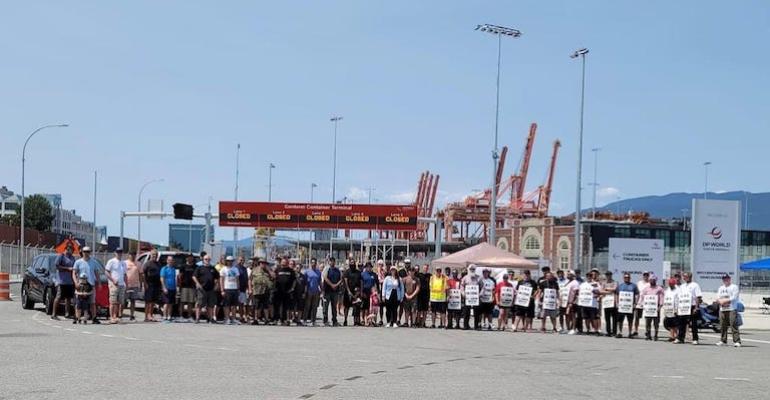The ILWU Canada Longshore Caucus voted against the mediators recommended terms of settlement saying they did believe they “had the ability to protect our jobs now or into the future”.
The decision by the Caucus mean that the terms of the tentative agreement will not be voted on by the union’s full membership and the strike at Canadian West Coast ports including Vancouver and Prince Rupert was set to resume at 4-30pm (local time) on Tuesday.
“On July 18, 2023, as of 16:30 the ILWU Canada Longshore Division will be back on the picket line for a fair and negotiated collective agreement,” the ILWU Canada stated.
A tentative agreement was reached on 13 July following some 13 days of strike action that paralysed Canada west coast ports impacting billions of dollars worth of trade. The tentative agreement was reached after the intervention of the Canadian Minister of Labour Seamus O’Regan who stepped in earlier in the week to ask the federal mediator to recommend a settlement.
The recommended settlement was ratified by employers represented by the BC Maritime Employers Association (BCMEA) on 13 July.
“We regret to advise that ILWU Canada (ILWU) has communicated that ILWU’s internal caucus leadership rejected the tentative agreement, before it was even taken to a vote of the full union membership,” BCMEA said on Tuesday.
“This fair and comprehensive package could not satisfy some of ILWU internal caucus leadership, and in rejecting this tentative agreement, ILWU Leadership is choosing to further harm Canada’s economy, international reputation and most importantly, to Canadians, their livelihoods and all those that rely on a stable supply chain,” it stated.
The recommended settlement took the form of a four-year deal.
“The term of the collective agreement that was given with today’s uncertain times, is far too long. We must be able to readdress the uncertainty in the world’s financial markets for our members,” the ILWU Canada stated.
Copyright © 2024. All rights reserved. Seatrade, a trading name of Informa Markets (UK) Limited.
Add Seatrade Maritime News to your Google News feed.  |

